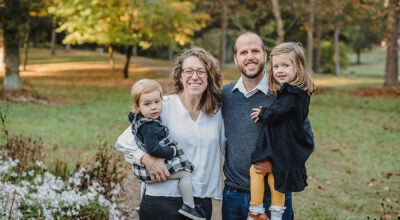NC judge: Private school vouchers unconstitutional
Published 12:00 am Friday, August 22, 2014
RALEIGH (AP) — A new school voucher program for low-income families was ruled unconstitutional Thursday by a judge who said taxpayer money should not be used for tuition to private or religious schools.
The vouchers pay for students to attend privately run K-12 schools that do not have to meet state curriculum requirements, violating the state constitution, Wake County Superior Court Judge Robert Hobgood said.
“Appropriating taxpayer funds to unaccountable schools does not accomplish a public purpose,” Hobgood said.
A teachers group and many of the state’s 115 school boards challenged the voucher program. Advocates said they planned to appeal.
At least a dozen states and the District of Columbia provide state-funded school vouchers, according to the National Conference of State Legislatures.
The State Educational Assistance Authority, which was given the task of managing $10 million in government-funded scholarships, planned to distribute the first $728,000 in tuition money to schools for 363 students on Tuesday. None of that money was given out, said the agency’s grants director Elizabeth McDuffie.
Iris McElveen, 45, of Fayetteville got the news of the judge’s ruling as she was running back-to-school errands, including a visit to the doctor’s office. She’d already bought a uniform and school supplies for her 12-year-old son, who enrolled at a Christian school ready to accept the state payment.
“It’s very stressful,” said McElveen, a single mother whose three older children are in high school and college.
McElveen sought to send her son to the religious school because it “would have been a more one-on-one” than the charter school, where she said “the classes were too, too large. He was getting overlooked.”
Hobgood blocked the state voucher program in February until there could be a trial. The state Supreme Court reversed him in May and allowed implementation to go ahead.
In June, the state agency moved up the date to distribute tuition funding so that it could do it before Hobgood’s ruling. Executive director Steven Brooks said the agency decided distributing the money sooner was better, not that they wanted to get out ahead of the judge.
The program’s supporters hoped an appeal would let the vouchers continue, said Darrell Allison, president of Parents for Educational Freedom in North Carolina.
“While this court decision might represent a temporary roadblock on the path towards educational freedom in North Carolina, I believe it’s just that — temporary,” Allison said in a statement. “We’re going to continue to fight for a parent’s right to choose the educational setting that works best for their children.”
The group Public Schools First NC praised the ruling.
“This upholds North Carolina’s long-standing commitment to public education. Public education creates productive citizens, a strong economy, and a great democracy,” Yevonne Brannon, the group’s chairwoman, said in an emailed statement.
Children seeking the scholarships must qualify for the federal free or reduced-price school lunch program, which has an income limit of about $44,000 for a family of four. The grants aren’t available to students already attending private schools.
The General Assembly set aside $10 million last year to give up to $4,200 each for up to 2,400 students. About 5,550 children applied for the lottery to select the first year’s scholarship students, and of those 4,200 met the criteria to qualify, McDuffie said. Nearly 1,880 lottery-winning families had accepted vouchers by Thursday, she said.





